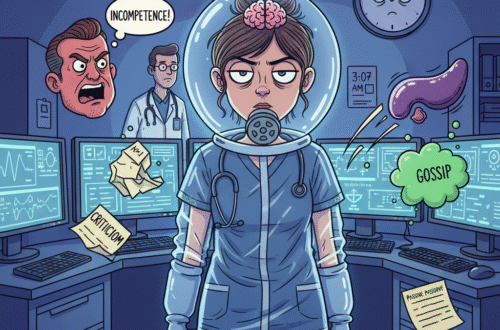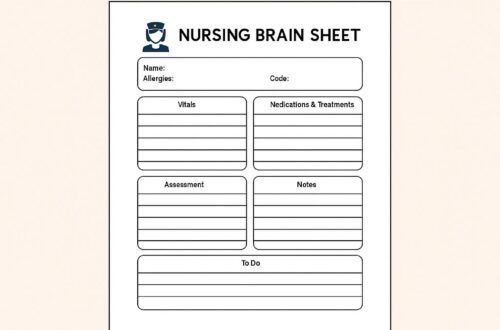The night shift: loved by some, dreaded by many. For healthcare workers, overnight shifts are often unavoidable — but they come with unique challenges. From battling fatigue to managing disrupted sleep cycles, working when the world sleeps can take a serious toll on mind and body.
But here’s the good news: with the right strategies, the night shift doesn’t have to mean burnout. It can actually be an opportunity for quieter patient care, stronger teamwork, and even better pay.
In this post, we’ll explore practical, science-backed tips to help you survive (and even thrive) during those long overnight hours.
Why Night Shifts Are So Tough
The human body is naturally programmed to sleep at night. Working against your circadian rhythm means:
- Lower alertness between 2 a.m. – 5 a.m.
- Disrupted sleep patterns and insomnia
- Higher risk of fatigue-related errors
- Increased cravings for sugar and caffeine
Understanding these challenges is the first step to beating them.
7 Tips for Thriving on the Night Shift
1. Protect Your Sleep Like It’s Sacred
- Use blackout curtains or a sleep mask to trick your body into “night mode.”
- Invest in a white noise machine to block daytime distractions.
- Stick to a sleep routine — even on days off, try to keep consistent hours.
2. Fuel Your Body the Right Way
- Bring balanced snacks (protein + complex carbs) to avoid vending machine temptations.
- Stay hydrated — dehydration worsens fatigue.
- Avoid heavy meals at 3 a.m. (your digestion slows overnight).
3. Use Caffeine Strategically
- Drink coffee/tea early in the shift, not after 2 a.m.
- Pair caffeine with a short power nap (20 minutes) for a double boost.
- Avoid energy drinks loaded with sugar — they crash you faster.
4. Stay Moving
- Take short walks around the unit.
- Stretch between patient rounds.
- Try “desk yoga” during documentation breaks.
Movement keeps blood flowing and helps fight the dreaded 4 a.m. slump.
5. Maximize Quiet Time
One of the best perks of the night shift? Fewer interruptions.
- Use downtime for catching up on charting.
- Bond with coworkers — night crews often form the strongest teams.
- Take the opportunity for deeper patient conversations when appropriate.
6. Prepare Your Family & Friends
- Let them know your “off-limits” sleep hours.
- Use a shared calendar so everyone knows your night shift schedule.
- Don’t feel guilty for missing morning events — your rest is a priority.
7. Find a Ritual to Reset Post-Shift
Transitioning home can be tough. Try:
- Taking a hot shower to relax before bed.
- Listening to calm music or a podcast.
- Writing down one positive moment from your shift before “logging off.”
Long-Term Night Shift Survival
If you’re planning to stay on nights long-term:
- Invest in blue-light blocking glasses for the commute home.
- Consider rotating exercise routines to match your schedule.
- Check in regularly with your doctor — night shift workers are at higher risk for blood pressure and metabolic issues.
Final Thoughts
Working the night shift isn’t easy — but with smart strategies, it can be sustainable and even rewarding. By protecting your sleep, fueling your body well, and leaning on your team, you can thrive in a world that runs 24/7.
👉 Are you a night shift warrior? Share your best tips (or funniest overnight stories) in our Submit a Story section to inspire others navigating the dark side of healthcare.





